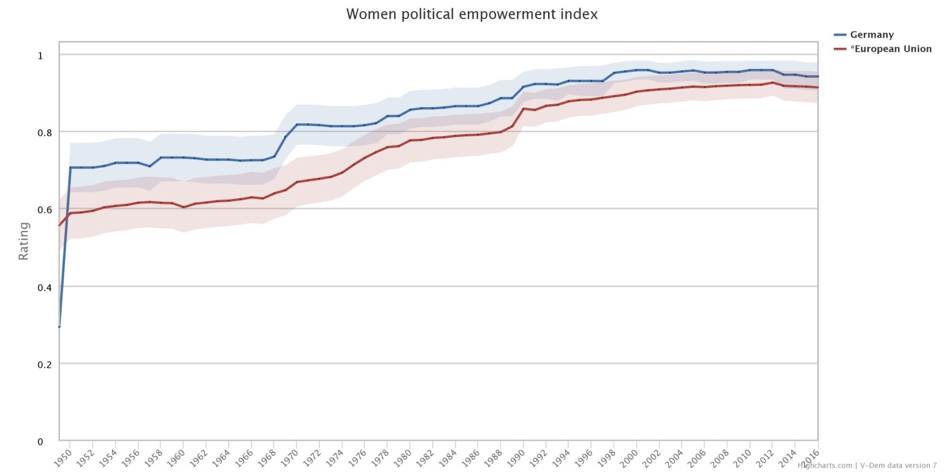Elections in Germany
By: V-Dem Staff
Sep 25, 2017
The German federal election, held on Sunday September 24, has given Angela Merkel a new mandate. Sometimes referred to as the “Iron Frau” or “Mutti”, Merkel was the first woman elected to the position of Chancellor of the Federal Republic. If she completes her term, she will become the second longest serving Chancellor of post-war Germany, closely behind Helmut Kohl’s sixteen year Chancellorship. Merkel is not, however, the only female party leader in Germany. Women lead or co-lead four of the six main parties in Germany. This week’s graph looks at women’s political empowerment in Germany compared with the average among current EU member states.
V-Dem’s Women Political Empowerment Index looks at three dimensions: fundamental civil liberties, women’s open discussion of political issues and participation in civil society organizations, and the descriptive representation of women in formal political positions. Women’s political empowerment is defined as the process of increasing capacity for women in these three dimensions, leading to greater choice, agency, and participation in societal-decision making. Although women’s political empowerment has an intrinsic value, in recent years it has also been promoted as a stabilizing force in democratic transitions and peace processes. In the graph, we see that in both Germany and the EU, women’s political empowerment index has progressively increased since the 1950s.
To find out more about women’s political empowerment, or more V-Dem data, use our online analysis tool at v-dem.net.


